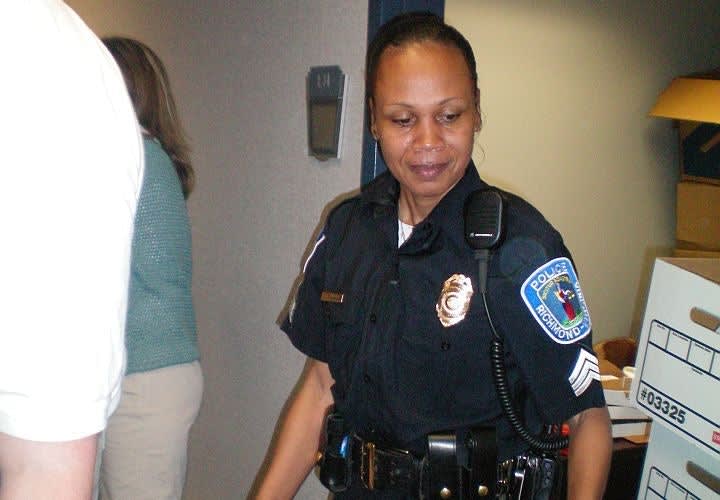October is Domestic Violence Awareness Month and for all of us in law enforcement I don't need to tell you how pervasive, tragic, and sometimes preventable this hideous crime is. But what I do want to tell is my story, my connection with domestic violence, why I joined the Richmond (Va.) City Police Department, and what I'm doing to help.
Thirty years ago my mother became a victim of domestic violence. She died of a several gunshot wounds inflicted by my father. It took me years to speak about my family's tragedy — and even now as I write these words, it seems as if I'm referring to some other family, or even some other mother. But this is my family's sad legacy, and I wouldn't be doing justice to my mother's memory if I didn't tell her story in an effort to prevent similar heartache for another family.
My mother, Orine Adams, was a beautiful young woman of 33 when she died in 1980. A passionate Washington Redskins fan, Mom was fun and hard-working, waiting tables to help support my younger sister, Patsy, and me. For years, I had watched the abuse, watched the police come and go, watched her take my father back time after time. As a teenager, I begged her to leave but she wouldn't discuss it. Domestic violence was a shameful secret in those days, and Patsy and I were her silent co-conspirators.
On the night she died I was 17 and had just come home from a date. Our house was quiet as I got ready for bed. Then I heard shots ring out. I called 911, and the rest is a blur of sirens, hospital waiting rooms, anxious faces of relatives, and the aching helplessness of realizing she wasn't coming back.
Tragically, my story is not unique. Nationally, one in every four American women report being physically or sexually abused by a husband or boyfriend at some time in their lives. And because domestic violence doesn't discriminate, its victims are of all ages, from all backgrounds, income groups, neighborhoods, races, religions, and professions.
Unlike many children who have witnessed domestic violence, I've made sure that my family's curse is not passed down to the next generation. My children were raised in a home that was loving and peaceful, and they have been taught what to expect from a healthy relationship. And I chose a career in law enforcement, as did my sister, because I knew I could make a difference by educating while providing protection, by enforcing our laws, and by pursuing the perpetrators of crimes.
As police officers, we're in a unique position to help protect and guide victims of domestic violence to safety. We've been trained how to identify the signs and intervene to prevent further escalations. We're meticulous in our investigations and determined to bring perpetrators to justice. If anyone is looking for an additional way to help support victims, I have a suggestion, a simple idea that's easily put into action: Start a HopeLine cell phone collection.
HopeLine is a phone recycling program operated by Verizon Wireless. Individuals collect old cell phones, batteries, and chargers, download a free shipping label off the company's Website, and send them off to a recycler, which converts the donations into support for domestic violence victims and advocacy groups in the form of cash grants and free wireless phones with airtime for distribution to victims.
I've been partnering with HopeLine for the past six years and have turned in thousands of old cell phones and helped direct more than $15,000 to non-profit domestic violence service providers in my community, including the YWCA of Richmond and Comfort Zone Camps, which runs a bereavement program for kids. I have the full support of my chief and have become known throughout Richmond as "the cell phone lady."
If your department wants to get involved in the HopeLine program, contact me for details. With October's focus on domestic violence prevention, now is a great time to start.
Sgt. Carol Adams of the Richmond (Va.) Police Department can be reached at Carol.Adams@richmondgov.com.












